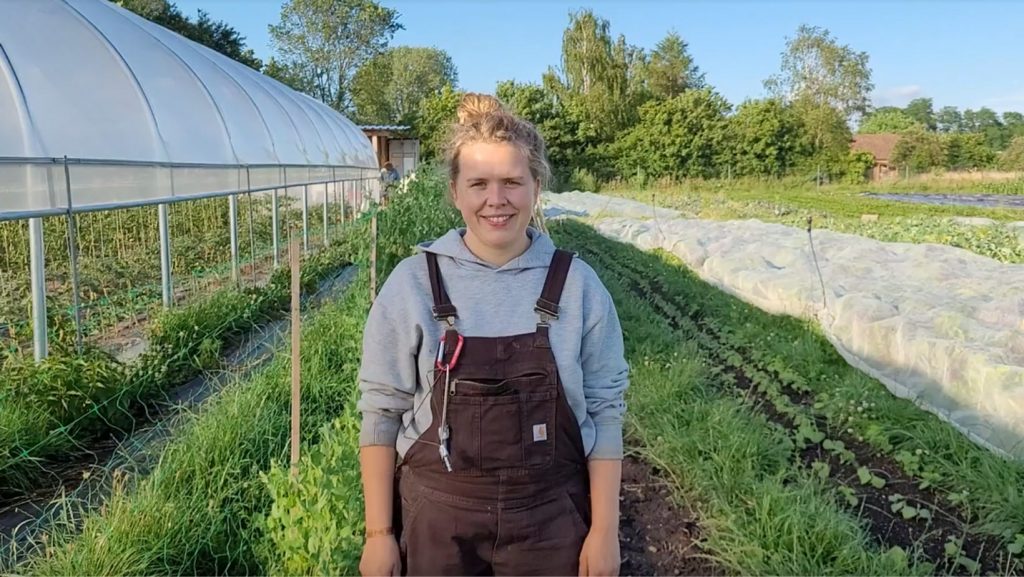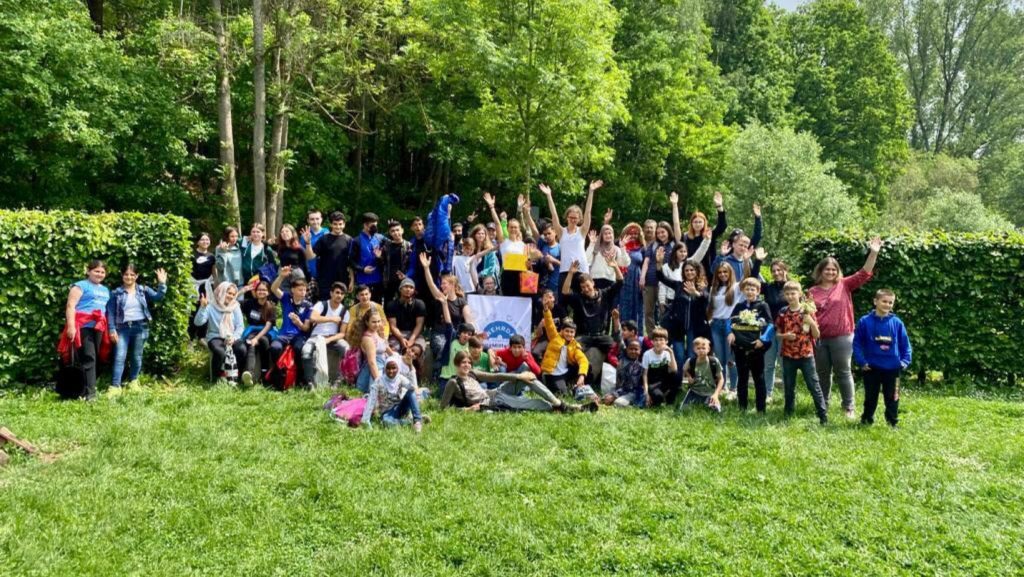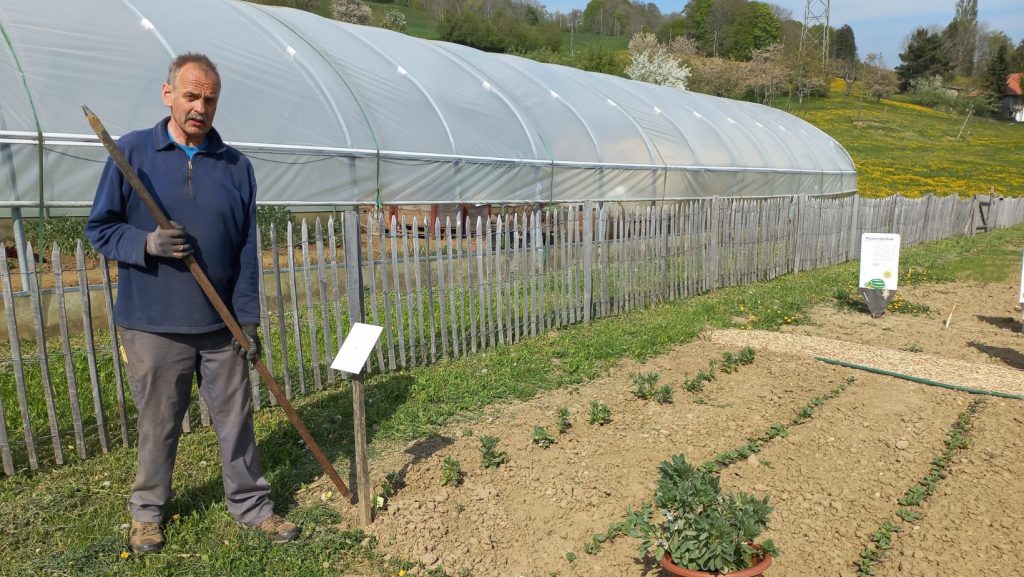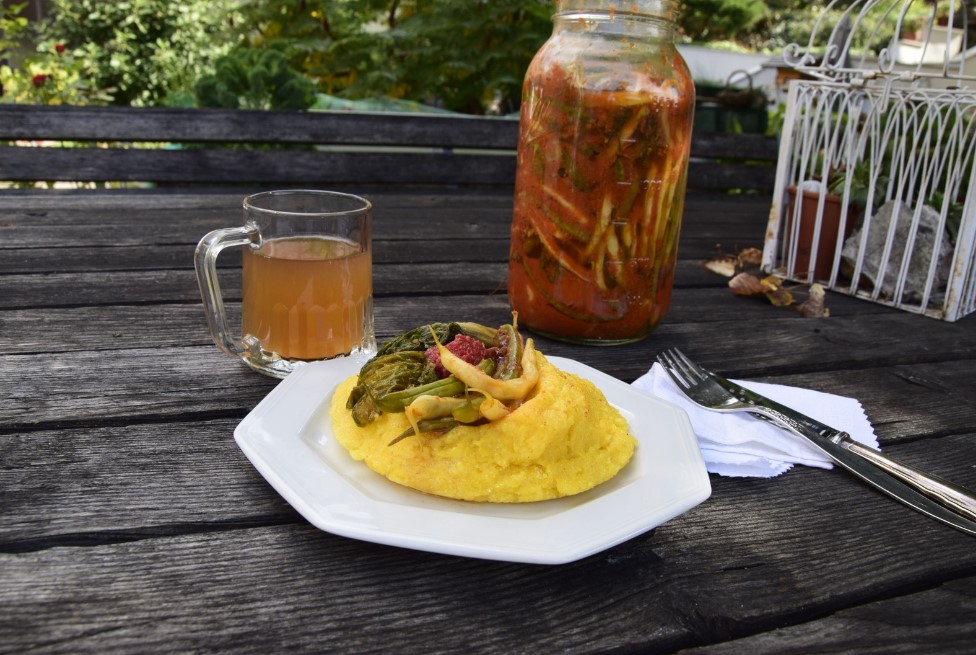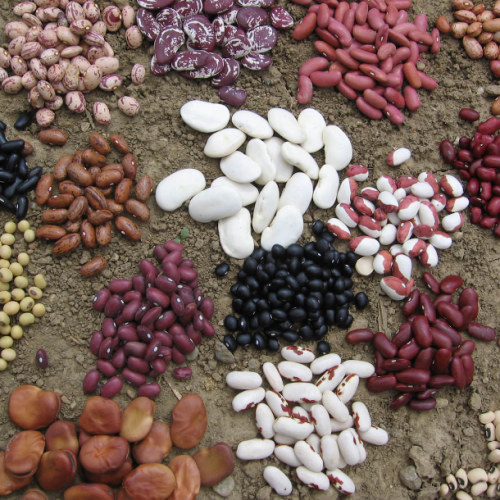We are a volunteer group within the community garden project at the Ecological Education Center in Munich and collect varieties of beans that are no longer in commercial use. We are enthusiastic about the diversity and the aesthetics of beans, of course also about the culinary enjoyment and their ecological value. We want to bring the variety of beans into gardens and onto people's plates. That is why we are expanding our nationwide network of gardeners, who help us preserve the beans by planting them in their private gardens and sending back the harvested seeds. We now have over 200 varieties and approx 100 people who join us as sustainers. Our goal is to spread the use of old bean varieties and raise awareness of the importance of seed autonomy.
Global Bean projects we are involved in:
We can offer:
Seeds and experience with cultivation of 200 varieties and description of varieties. Instructions for cultivation and description sheet.
We seek:
exchange with other groups to share the sustainers work.
In the Global Bean network since:
July 2022
A growing network of digitally connected microfarms, Tiny Farms grows organic regional vegetables for cities.
Read more
Tanja Neuschild, working for the Food council Marburg, wants to raise the attention of the local community to the huge diversity of legumes that can grow in the village. This bean show garden is located in Wehrda, a district of the German city of Maburg.
Read more
Nikos Dompazis cultivates traditional varieties of vegetables and legumes in Northern Greece (Komotini) in a garden of approx. 700 m2, since 1996.
Read more
On the 2,000 m² field in Attiswil, the world's most important 50 or so arable crops are grown in the proportions in which they grow on the world's 1.4 billion hectares of arable land. “Beans” are the annual topic in 2022 with little show gardens, installations and events.
Read more

Public canteens are often, especially in schools, considered a mere cost item in the budget of a municipality or a company. Instead, collective catering can have an important educational value, a significant health impact and be a driver for the development of local sustainable agriculture.
Read more


 Publications
Publications Showgarden
Showgarden Recipes
Recipes Events
Events Articles
Articles